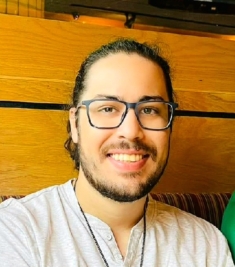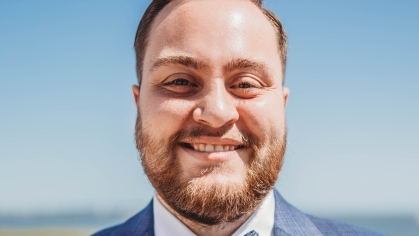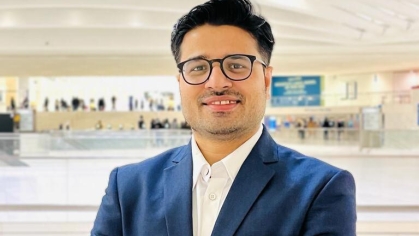Meet Yadiel Varela Soler
“Rutgers’ chemical and biochemical engineering program is one of the most interdisciplinary degrees I have ever come across.” – Yadiel Varela Soler
Yadiel Varela Soler, who earned his BS in chemical engineering from the University of Puerto Rico, expects to earn his School of Engineering doctoral degree in chemical and biochemical engineering (CBE) in 2025. A highlight of his Rutgers Engineering experience has been his participation from fall 2021 to May 2023 in Rutgers’ PhD Training Program in Biotechnology.

Established in 1989, it has since received continuous funding from the National Institute of General Medical Sciences of the National Institutes of Health (NIGMS NIH). The two-year program, which offers financial support, aims to train a new breed of creative researchers able to transform science discoveries into tools and technologies that meet the needs of society, government, and industry.
Why did you choose Rutgers SoE for your graduate education?
The School of Engineering’s chemical and biochemical engineering program is one of the most interdisciplinary degrees I have ever come across. As an undergraduate, I remember thinking that I wanted to continue applying my chemical engineering background to whatever research I became involved in.
However, I felt that degrees that focused exclusively on chemical engineering lacked the biological aspect I also wanted. Rutgers CBE has allowed me to combine both into my professional education and research.
So far, what do you most value about your Rutgers Engineering Education?
The cross-disciplinary nature of the research and easy access to intra- and inter-departmental collaborations.
What is your research focus?
It focuses on developing polymeric nanoparticles for the treatment of lung biofilm infections. These nanoparticles are hypothesized to enhance the penetration of drugs across lung mucosal and bacterial biofilm barriers, which would result in an overall treatment outcome. Although we are still in the early stages of the project, our progress so far has been very exciting.
How does the Biotechnology Training Program support your CBE focus?
My research is attempting to use scientific principles and concepts such as detergency to engineer a nanomedicine with potential clinical benefits. While still in the early stages of the project, progress so far has been very exciting.
This is, in a way, the same as the Biotechnology Training Program’s goal, which aims to train students to convert scientific discoveries into technologies that benefit healthcare and society.
The program’s tuition and stipend support has allowed me to focus more on my research and invest less time in duties such as being a TA, and has also provided me with financial support to attend relevant conferences such as the 2022 AIChE Annual Meeting. More recently, through the program, I was able to obtain a 2023 summer internship from Merck.
What was your traineeship experience like from a CBE perspective?
I received an email about the program from CBE associate professor and graduate program director Fuat Celik during my first year. I was unsure about applying since I wasn’t a biomedical engineering or biotechnology student. However, both Dr. Celik and my research advisor CBE professor Charles Roth encouraged me to apply.
At the beginning, the Biotechnology Training Program was a bit overwhelming to someone with a pure chemical engineering background like me. However, required courses in key areas of biotechnology helped make that gap of knowledge quickly fade.
What advice do you have for future CBE doctoral students?
I urge them to consider applying to the Biotechnology Training Program, which offers a number of professional and personal development opportunities. If you have questions or concerns, reach out to the program directors, CBE students in the program, your research advisor, and the CBE graduate program director, who would all be happy to help.
What do you plan to do after receiving your PhD?
Good question! I’d like to pursue a scientist position in research and development.


